21 FEBRUARY 2020 08:30
HAGLEY OVAL PAVILION
Slides: Scrum Myths.pdf
Conference
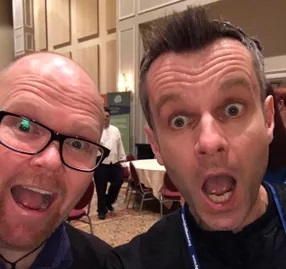
Past events have been held in:
- Dunedin on 24 May 2019.
- Christchurch 22 February 2019.
- Tauranga on 29 September 2017.
- Hamilton on 27 October 2017.
- Christchurch 23 February 2018.
- Dunedin on 25 May 2018.
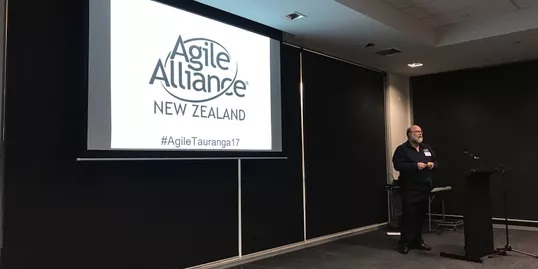

We are a not for profit organization that simply wants to promote Agile Software in the New Zealand community because we believe in it.
Get 90% off a 1 year individual membership to Agile Alliance, on the day for only $10 USD.
Conference Details
Hagley Oval is located in South Hagley Park – 63 Riccarton Ave.
- 08:30 Doors Open
- 08:50 Welcome: Joe Kearns
- 08:55 A word from our sponsors.
- 09:15 Evan Leybourn: Certain Uncertainty
- 10:00 Tea Break
- 10:15 Renee Troughton: Know Thyself: Using introspection to coach yourself
- 11:00 Darren & Damian: Up's and downs of AsureQuality's agile transformation
- 11:45 Sandy: Board of directors view of agile.
- 12:30-13:00 Lunch (Provided)
- 13:00-13:45 Joe Kearns: Start Making Sense – how to stay on track when ‘going Agile’ gets hard
- 13:45-16:00 Openspace Event
- 16:00 Close
Full Price: $150
Late Price: $250
Speakers
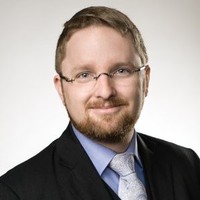

Summary of session:
This talk will share how the next-generation of companies are designing themselves to thrive in uncertainty. We’ll look at the Domains of Business Agility, interspersed with case studies from 4 multinational organisations in both the banking and utilities sector.
Description of your session:
The world is changing more rapidly than ever before and organisations of every size are struggling to remain relevant in the eyes of their customers. The simple fact that the average lifespan of a company has decreased by more than 50 years in the last century demonstrates that not all organisations are prepared for this new reality. It is only high-performing, adaptable and agile organisations that will leverage, lead and thrive in this ambiguous and unpredictable market. We call this business agility.
The problem with a statement like that is that there is no common definition of what business agility means. And that’s actually a good thing. In a dynamic and changing market trying to lock it down will defeat the very advantage it brings. Instead, I want you to start thinking of business agility as the common thread. An adaptable and sustainable narrative that binds & guides, rather than directs, us into the uncertain future.
Biography:
Evan is the Founder and CEO of the Business Agility Institute; an international membership body to both champion and support the next-generation of organisations. Companies that are agile, innovative and dynamic - perfectly designed to thrive in today’s unpredictable markets. His experience while holding senior leadership and board positions in both private industry and government has driven his work in business agility and he regularly speaks on these topics at local and international industry conferences. As well as leading the Business Agility Institute, Evan is also the author of #noprojects; a culture of continuous value and Directing the Agile Organisation.
Slides: Know Thyself- Using introspection to find your inner edge v2.pdf
Talk: Know Thyself: Using introspection to coach yourself
Description of your session:
Team's often reflect on how they can work more effectively on a regular basis using Retrospectives. Agile Coaches can help to drive insight on behaviours through coaching and reflecting back what they see. But these are mechanisms that are applied to others.
Introspection is a personal process that can be applied by yourself, to yourself to provide deep insight into your own perceptions and give you the freedom to remove deep pain within your life.
Learning these techniques have changed my life. It is my gift to share them with you, because when you can control yourself fully, you can give your full self to your teams and enrich all those around you.
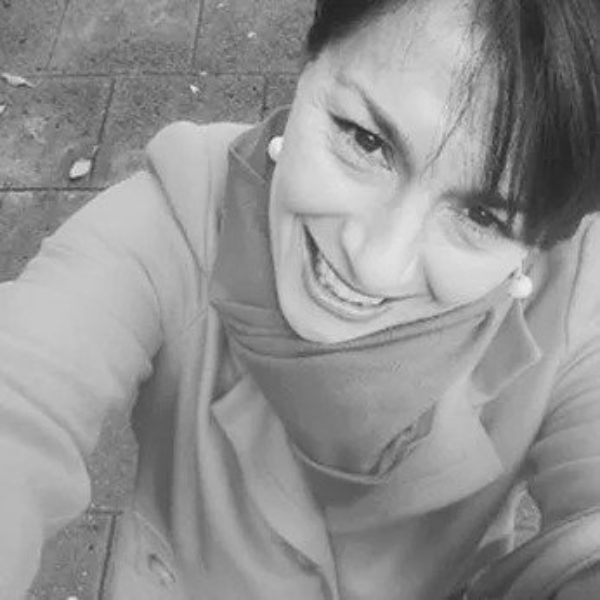
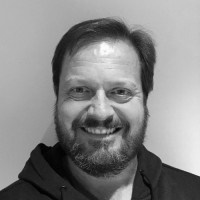
Sandy is an agile product coach at Product Space. With a deep love of digital product management, she's been involved in more than 30 digital (hardware and software) products across B2C and B2B. Sandy's seen the best and worst so with humour, kindness and pragmatism she coaches people, teams, and leaders in new ways of working and in optimising how organisations bring their digital products to market.
As a Non Executive Director, and the reason she’s with us today, Sandy joined the Board of CHOICE (think Consumer NZ) in 2012 and was elected Chair in 2017. She Chairs the Governance Committee and the Investment Committee, and is a member of the Commercial Sustainability Committee.
She’s just completed a two-year stint Chairing the rebirth of Australia’s Internet governance community (think NetHui) and in November last year she was elected to the Board of auDA, the Australian entity that manages the .au domain name space (think InternetNZ).
She's been mashing her agile and product craft with being a Board Director because she has a deep interest in understanding Leaders and Boards perspectives as they embark upon their "product and business and organisational agility" journey.
Darren & Damian ....
....
....
....
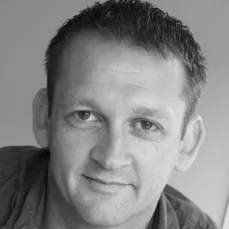
Slides: Joe Kearns Start Making Sense AgileChch2020.pdf
Joe Start Making Sense – how to stay on track when ‘going Agile’ gets hard.
Agile has so much promise and a lot going for it. It seems to make a whole lot of sense. But the reality is it’s hard, really hard sometimes. Our organisations and work are complex, and so are our people. It's no wonder that for sceptics, unconvinced management or conservative organisations, implementing Agile can seem ineffective or the wrong thing to do. These doubts can easily lead to U-turns, compromised implementations or failure to get Agile off the ground at all.
So, why is that? In this session, Joe will talk about why implementing Agile in your organisation might be hard. He’ll share ways you can identify where you're at and make a plan for what to do next.
This session will be useful for anyone in a team that runs an Agile framework, leaders of Agile teams, or any leader who wants to know more about Agile.
Sponsors


Our culture
Culture is people. At Media Suite, our people are the core of what we do.
Culture isn't something you can manufacture or force. We believe in hiring the right people who will contribute to, and evolve, the core principles our culture is based on.
- flexibility and accountability
- learning and growth
- people and community
- value and integrity
We are one of the city’s largest businesses and the second-largest employer in the South Island, with more than 3,000 staff working in sites across Christchurch and Banks Peninsula.
We provide services and facilities to more than 380,000 residents, plus visitors. From rubbish collection and recycling, to cycleways, libraries, sports and recreation facilities, events and festivals we do it all – and a lot in between.
Our vision is to make Christchurch a city of opportunity for all – open to new ideas, new people and new ways of doing things – where anything is possible.
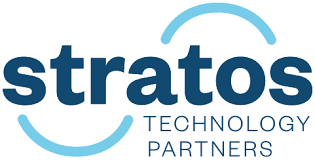
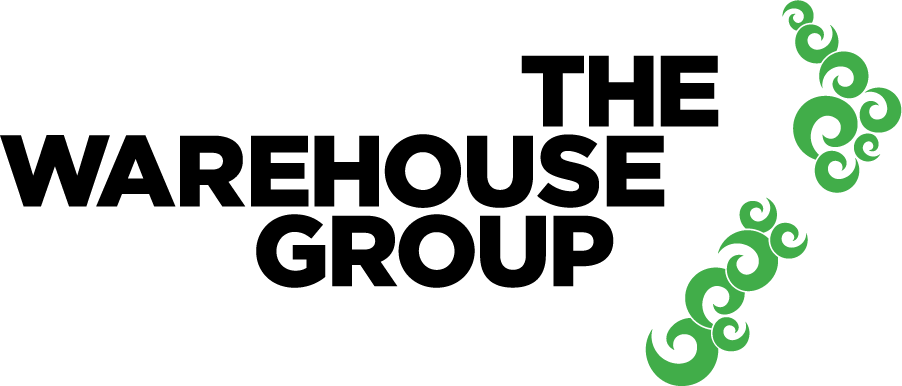
Stratos Technology Partners launched in 2011 with a small team working around David’s kitchen table. Initially working with a small group of Christchurch based clients, Stratos has grown to provide a full range of Software Development and SharePoint technology services to clients across New Zealand and Australia.
Our team has a range of expertise and experience you would expect to find in larger service providers, however we still use a personal touch when partnering with clients. Taking the time to understand our clients business is at the centre point of everything we do.
In 2017 Stratos was accepted into the Christchurch NZ High Growth Launch Programme and followed this up with the Amplifer Programme in 2018. This has been instrumental in developing our long term growth strategy and increasing the capabilities of our team.
We are involved in many community IT groups including Canterbury Tech, Microsoft Communities and local user groups. Stratos are members of the Microsoft Partner Network.
The Warehouse Group (TWG) is a New Zealand success story, founded by Sir Stephen Tindall and evolved from a single The Warehouse store to become one of the largest retailing groups in New Zealand with $3 billion in sales. TWG consists of six core retail brands: The Warehouse, Warehouse Stationery, Noel Leeming, Torpedo7, 1-day and TheMarket. We have 260+ retail stores, online stores as well as distribution centres throughout New Zealand. We also have two overseas sourcing offices located in China and India. We are a people-centred business with more than 12,000 team employees across our locations
TWG is known for being Here for Good - it’s who we are and what keeps us focused to succeed. It represents our commitment to better living for all New Zealanders, through sustainable retail products and practices and the mission of contributing to the long-lasting health of our planet.
Over the years, we’ve raised over 50 million dollars for New Zealand communities and have contributed to countless community-focussed initiatives. We were the first company in New Zealand to add a Shielded Site link to the Women's Refuge website to help protect those experiencing family violence, and were a key supporter of the Government’s Family Violence Victims’ Protection Bill. We were New Zealand’s first large company and the third major retailer in the world to go carbon neutral.
While we may be approaching 40 years old as a business, in many ways we feel we’re just getting started.
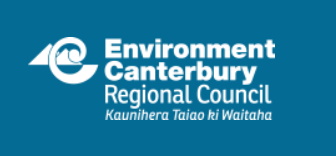

Tō tātou kaupapa
Our purpose is to facilitate sustainable development in the Canterbury region.
Te huawaere i te kauneke tauwhiro i Waitaha.
We do this so:
- We can breathe clean air, play and swim in the rivers, gather mahinga kai, benefit from the productive use of our land, and enjoy Canterbury’s unique biodiversity taonga and landscapes.
- We can live, travel, and move goods with ease, within and to/from the region, facilitating work, leisure and tourism.
- We have access to the information we need to be resilient in the face of short-term hazards and well-prepared for longer-term change to our region’s natural environment.
- We can all help shape the future of Canterbury, leaving a legacy for generations to come.
Sourced are IT recruitment specialists and are heavily focused on supporting our local industry. We know Christchurch (and are learning Auckland through our Sourced Reports), and more importantly, the ever-changing IT and Technology scene; with a dynamic team that boasts the most local IT recruitment experience, we bring fresh ideas and excellent job opportunities to you, every day.
Officially launched on the 21st of February, 2011, Sourced is the brainchild of Michelle and Jason, and thrives on the basic values of genuine partnership, delivering quality 100% of the time, and being the go-to place for insight at all hours of the day!
We have recieved the following recognition/awards:
- Finalist for the RCSA’s Excellence in Client Service award 2015 and 2017
- Winner for the RCSA’s Excellence in Client Service award 2016
- Won Most Innovative Agency of the Year award in 2014.
- Runner up in the 2011 and 2012 SEEK SARA Awards for the Favourite Small Recruitment Agency category
Openspace event
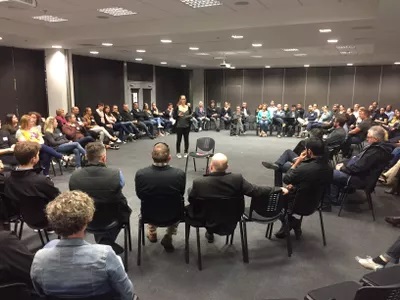
It can be used with groups from anything between 10 and 1,000 people.
In Transition it is particularly important because it enables people with ideas and energy to connect creating the opportunity to turn ideas into action.
It is the foremost tool used by Transition groups to move from ‘we have no idea’ to action.
2. Whatever happens is the only thing that could have
3. Whenever it starts is the right time
4. When it’s over, it’s over
-
Butterflies.
- These people hang out, maybe drinking tea, and don’t appear to do much
- However they may just be involved with the most important discussions of the day
-
Bees.
- They flit from conversation to conversation bring new ideas, and fresh eyes to the table
- They can also encourage mingling for those for whom the Law of Two Feet feels a bit rude
- Lots of marker pens
- Lots of pieces of paper to write questions on
- Big pieces of flipchart paper to record discussions
- Blutack
The question you ask and how you frame it will determine who comes so be mindful of this.
It can be tempting to just want people who agree with you to turn up, but this will limit the diversity of your group and the success of Transition!
Usually this is in the title of the event as it helps set the ground for what is to be under discussion at the session.
Some examples from Transition Town Totnes have included:
- How Will Totnes Feed Itself Beyond the Age of Cheap Oil?
- Powering Totnes Beyond Cheap Oil . . .
- The Economic Revival of Totnes – how can we build a sustainable, equitable and healthy economy in Totnes?
It is important that the question is stated clearly on the invitations and all publicity.
- Large enough to take those who attend sitting in a large circle
- Has walls on which you can stick things
- Has enough space for several discussions to happen
- In the centre of the circle is a pile of sheets of A4 paper and pens, and on the wall or floor have an empty timetable with the timings of the different sessions on left and the various discussion areas on the top like on the Left
- Explain to people the four rule, the Law of Two Feet, the insects and how to record discussions.
You also might include a bit about how to facilitate at the tables.
For instance making sure one or two voices don’t always dominate discussions, or the art of making people feel safe and welcome so they have the confidence to take part. -
Then offer people the opportunity to propose a question, if they do this then they must:
- Host that discussion
- Record the conversation themselves or arrange someone else to do it for the benefit of anyone unable to participate
- Write their name on the sheet
- Then they post the question on the timetable.
-
Then say “Go!”.
This is the nerve-racking bit.
You may worry that no one will come forward, but then one person does and often loads more then follow.
Then the following needs to happen:- Ten minutes of people proposing questions and sticking them up on the timetable
- You may well end up with more questions than you have slots available, in which case put those on similar topics together
- Once your timetable is full, allow people a few minutes to look at it and work out what they want to go to, and then ring a bell, or something similar, to announce the start of the first session
- People then go to the space where there question is being hosted and the discussions begin
- In theory, the rest of the day will organise itself as long as you do the following:
- Ensure each break-out space has plenty of flip-chart paper and pens
- Tell people when each session starts, and remind them about the Law of Two Feet
- At the end of each session, ring a bell to let people know it is finished
- Go round and collect up the note filled sheets
- Put them up on the wall in the area you have pre-designated as the ‘Market Place’
- You may also choose to have someone typing up the sheets, if you are posting the proceedings live on the web or if you want it typed up to send out quickly
- Leave 30-40 minutes or so at the end to allow one person to feedback from each discussion and for everyone to feedback on the process
- The notes generated can be typed up and circulated to everyone who attended
Future activities might well emerge from the session, but you might want actions to be agreed and taken forward.
This will determine what shape the closing session takes.
It could be a brief thank you and hope you had a good time, to a more specific planning,setting up working groups or anything else that needs to happen. In which case more time is needed to come to agreements.
Open Space is surprisingly easy to run, and an amazingly powerful way of exploring issues.
What it does is draw out all those who are really passionate about a subject.
For your first one you might find it useful to have someone with prior experience of running Open Space to facilitate it, but once you have a successful Open Space under your belt, you’ll marvel at how simple it is!